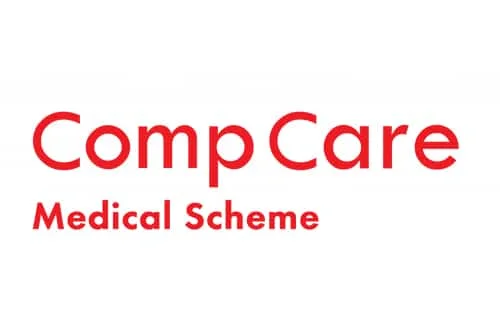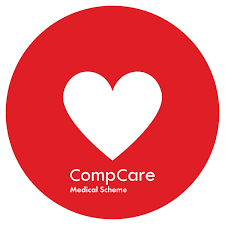
Medical Aid Covers Up To 21 Days Of Inpatient Rehab
Could your medical aid cover up to 21 days of inpatient rehab including a medically supervised detox to support safe recovery?

Compcare Medical Aid covers up to 21 days in an inpatient drug and alcohol rehab facility, including a 3-day medically supervised detox from drugs and alcohol. Admitting you have a problem takes tremendous courage and the willingness to come into treatment even more so.
At Changes Addiction Rehab, we share the same values as Compcare Medical Aid, ensuring our partnership delivers the best possible treatment for drug and alcohol addiction to its members.
Overview Of Compcare Medical Aid
Compcare Medical Aid, a leading healthcare provider in South Africa, offers comprehensive medical aid and hospital plans that cater to the varying budgets and needs of its members, ensuring they are well-covered.
History Of Compcare Medical Aid
Compcare Medical Aid has built a solid reputation in South Africa, offering its members comprehensive medical aid coverage for over 20 years.
Their notoriety comes from their extensive coverage surrounding oncology and chronic medication.
Additionally, their comprehensive coverage extends to addiction treatment, which appeals to its members.
Coverage For Addiction Rehab
Compcare Medical Aid offers specific coverage for drug and alcohol rehabs in South Africa, depending on the plan chosen by the member.
Inclusion Criteria For Addiction Rehabs
To receive coverage for substance abuse treatment, members must meet specific criteria.
All medical aid plans, including Compcare Medical Aid, are required by law to cover substance abuse treatment as they fall under the prescribed minimum benefits (PMBs).
Members must undergo pre-authorisation to receive coverage for an inpatient rehab stay.

Extent Of Addiction Rehab Services Covered
Substance use disorder treatments are covered by Compcare Medical aid; they may include:
- Residential inpatient treatment
- Certain outpatient services
- Individual counselling
- Group therapy sessions
- Detoxification
Compcare Medical Aid pays up to 21 days of inpatient rehab treatment, including a 3-day detox. It is crucial to understand that most medical aid plans require a co-payment upon admission; the amount varies depending on the plan the member is enrolled in.
For maximum benefits and coverage, members should select a facility from Compcare’s Designated Service Providers (DSPs) list. This list includes facilities that meet Compcare’s quality standards and provide the best care for addiction rehabs.
Limitations And Exclusions
While Compcare Medical Aid’s comprehensive plans provide significant benefits, members should be aware of the limitations and exclusions. This will help them manage their expectations and ensure they make informed decisions about their treatment.
Benefit-Caps And Duration Of Treatment
Compcare Medical Aid sets a time limit on addiction rehab stays; their plans provide coverage for up to 21 days, including a 3-day medically supervised detoxification at an approved facility.
Additionally, Members are capped to 1 inpatient rehab treatment per year running from January to January.
A co-payment may be required upon admission to an addiction rehab; the amount will vary depending on the plan chosen by the member.
 Exclusions
Exclusions
Compcare does not cover some substance abuse treatments; they include:
- Alternative forms of therapy
- Inpatient treatment stays that have not been pre-authorised
- Luxury rehabs
Pre-Authorisation And Claims Process
The pre-authorisation process to obtain approval for an inpatient rehab facility is a quick process.
At our facility, we will do this on your behalf; our admissions team will phone the scheme and provide them with our facility practice numbers, your ICD-10 codes and relevant documentation.
This process takes less than 10 minutes; we aim to make the admissions process into our facility as easy and stress-free as possible.
Claims Procedure
After completing inpatient rehab treatment, members can claim back from Compare Medical Aid.
Keeping all the necessary receipts, supporting documentation, and medical reports is essential.
Members must complete a claims form provided by the scheme and submit it along with their receipts and documents within the timeframe specified; failure to do so may result in claims being denied.

Conclusion
Compcare Medical Aid provides comprehensive coverage for its members in addiction rehabs; coverage extends for up to 21 days, including a 3-day medically supervised detoxification in an inpatient drug and alcohol facility.
Substance abuse treatment is covered under all plans as it falls under the prescribed minimum benefits (PMBs); however, the extent of this coverage will depend on the plan chosen by the member. Co-payments may be required upon admission, and the cost will vary.
At Changes Addiction Rehab, we understand the complexities of navigating medical aids. We are committed to guiding you through the admissions procedure and providing the support you need. Contact us today to start your pre-authorisation process.
Are Addiction Rehabs Covered Under Medical Aids In South Africa?
Yes, all medical aid schemes are legally obligated to cover substance use disorder treatments as they fall under the prescribed minimum benefits (PMBs).
Does Medical Aid Cover Outpatient Treatment?
Medical Aids typically covers specific services offered at the outpatient program, not the entire program.
Do Medical Aids Cover Inpatient Treatment More Than Once Per Year?
No, Medical Aid Plans only covers one inpatient rehab treatment stay per year, running from January to January.
For Addiction Treatment Click On The Following Links:
Does Compcare cover inpatient addiction treatment and detox?
Yes. Compcare’s hospital/mental health benefits generally include coverage for inpatient addiction rehabilitation and medically supervised detox, under PMB rules and scheme limits.
How many days of rehab does Compcare cover?
Commonly, medical aid schemes (including Compcare) cover up to 21 days of inpatient rehab per year, with allowance for detox period, depending on the member’s option.
Are counselling, therapy and aftercare services covered?
Outpatient rehabilitation (counselling, therapy, follow-up services) is typically not covered unless explicitly included in your benefit option. Always check your policy schedule.
What is the pre-authorisation procedure with Compcare?
Pre-authorisation is required. You must submit the medical aid details, obtain ICD-10 codes and practice numbers, and coordinate with the rehab centre and Compcare’s authorization team before admission.






